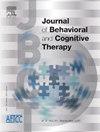通往心理健康的正念之路:全面回顾
IF 1.6
Q3 PSYCHIATRY
引用次数: 0
摘要
最近,正念已经成为一个非常有趣和讨论的话题。心理健康的一个关键要素是正念,它能提高自我意识、情绪控制、注意力、压力管理、自我调节,减少压力和焦虑,从而带来更大的幸福感和生活满意度。本研究旨在探索正念的概念化、维度及其与心理健康维度的整合,为实现更大的整体健康做出贡献。这是一篇使用PRISMA的一般性综述论文,数据来源包括Scopus数据库中的研究论文、综述文章,年份从2010年到2024年。研究结果表明,大多数研究都表明,正念与成功之间存在正相关关系。本研究还表明,正念有可能通过减少压力、焦虑和抑郁等心理健康问题来提高幸福感(例如,自主性、自我接纳、环境掌控、个人成长和人际关系)。局限性/启示:由于该研究仅关注具有心理健康成分的正念,以减少心理后结果的影响,因此该研究对特定区域的见解是有限的,这可能会影响研究结果的普遍性。为了使研究结果更适用于各种学术背景,未来的研究应着眼于了解正念在各行各业的长期可持续性。此外,研究正念对特定组织结果的影响,如流动率、员工敬业度和团队动态,可以更深入地了解它的好处。本研究考察了正念与心理健康的各个组成部分的整合,并表明正念与许多健康结果呈正相关。建议个人和组织将正念练习纳入日常生活,以促进一种幸福的文化,这种文化不仅可以增强个人的适应力,还可以改善个人健康。本文章由计算机程序翻译,如有差异,请以英文原文为准。
Mindful path to psychological wellbeing: a comprehensive review
Purpose
Mindfulness has recently emerged as a topic of significant interest and discussion. A key element of psychological well-being is mindfulness, which promotes improved self-awareness, emotional control, focus, stress management, self-regulation, and reduces stress and anxiety, which leads to greater well-being and life satisfaction.
The current research aims to explore the conceptualization of mindfulness, its dimensions, and its integration with psychological wellbeing dimensions, contributing to the achievement of greater overall wellbeing.
Methodology
This is a general review paper using PRISMA, which includes data from sources, including research papers, review articles from Scopus database with a year ranging from 2010 to 2024.
Findings
The majority of measures showed a positive correlation between mindfulness and successful outcomes. The present study also suggests that mindfulness has the potential to enhance wellbeing outcomes (e.g., autonomy, self-acceptance, environmental mastery, personal growth, and interpersonal relationships) by reducing mental health issues such as stress, anxiety, and depression.
Limitations/implications
The study’s insights from a particular region are limited due to its focus only on mindfulness with psychological well-being components to reduce the impact of post psychological outcomes, which may have an impact on the findings’ generalizability. For the results to be more applicable and relevant in a variety of academic contexts, future research should aim in understanding the long-term sustainability of mindfulness benefits in all walks of life. Additionally, examining the impact of mindfulness on specific organizational outcomes, such as turnover rates, employee engagement, and team dynamics, could provide deeper insights into its benefits.
Originality
This study examines the integration of mindfulness with various components of psychological well-being and indicates that mindfulness is positively correlated with a number of well-being outcomes. It is recommended that both individuals and organizations incorporate mindfulness practices into their daily routines in order to promote a culture of well-being that not only strengthens individual resilience but also improves personal health.
求助全文
通过发布文献求助,成功后即可免费获取论文全文。
去求助
来源期刊

Journal of Behavioral and Cognitive Therapy
Psychology-Clinical Psychology
CiteScore
3.30
自引率
0.00%
发文量
38
审稿时长
60 days
 求助内容:
求助内容: 应助结果提醒方式:
应助结果提醒方式:


